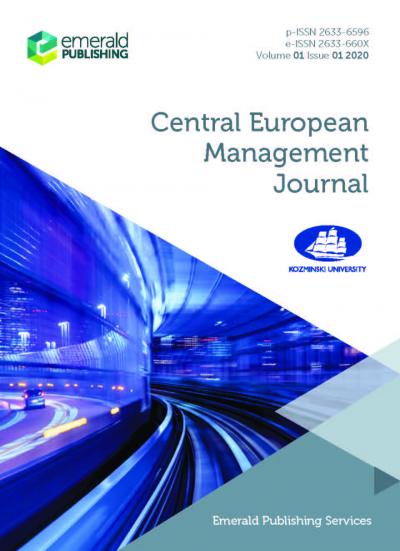Competency Needs of Industry 4.0 Companies
Bogusław Plawgo
University of Bialystok
Agnieszka Ertman
University of Bialystok
12/2021 29 (4) Central European Management Journal
DOI 10.7206/cemj.2658-0845.64








